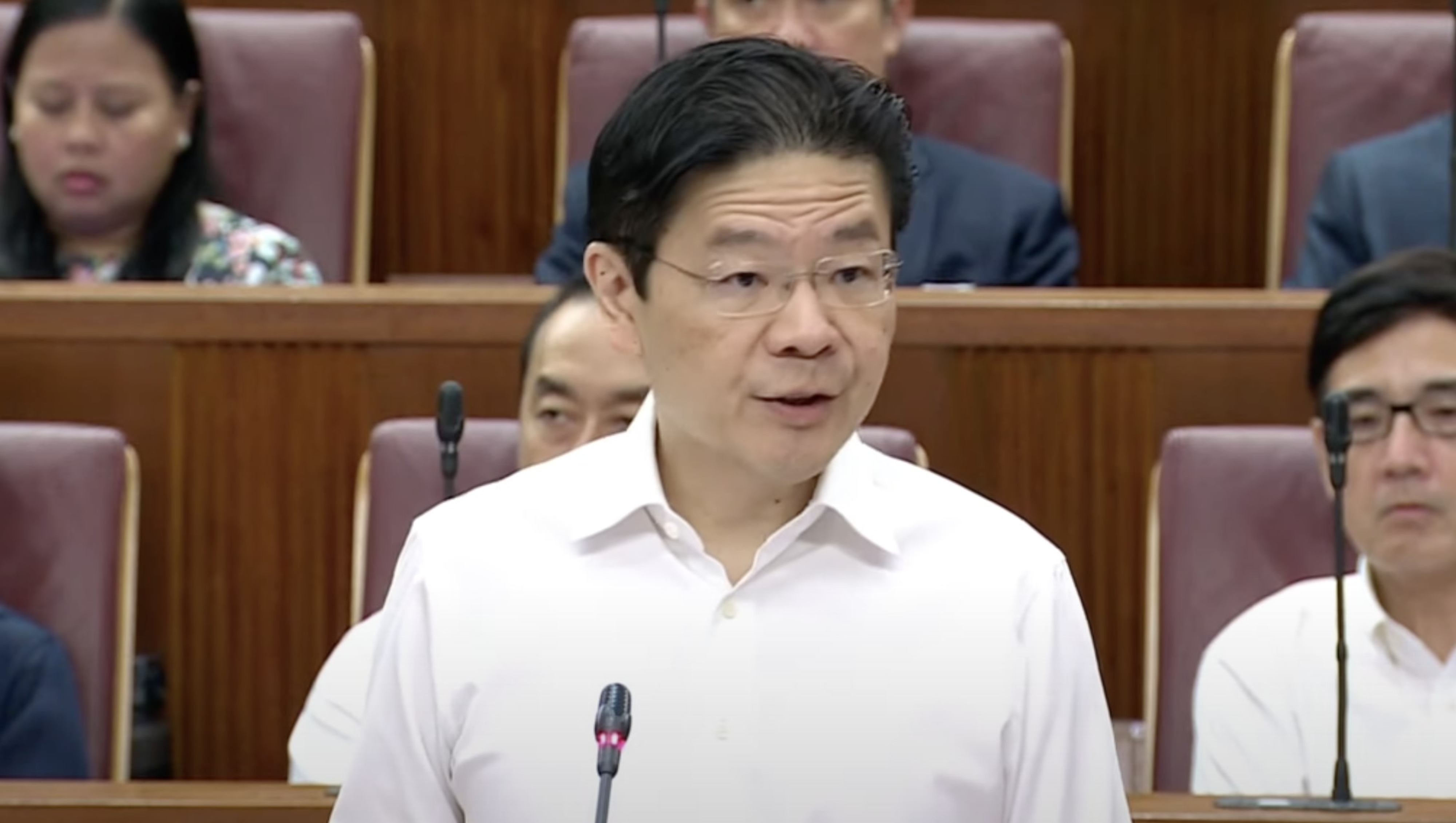SINGAPORE: Prime Minister (PM) Lawrence Wong said in Parliament on Tuesday (April 8) that while Singapore may or may not avoid a recession this year, the country’s economy will still be “significantly impacted” by the wave of tariffs introduced by US President Donald Trump, The Business Times reported.
Last week, Deputy Prime Minister (DPM) Gan Kim Yong said that the government is re-evaluating its growth estimates for 2025, adding that it may downgrade its full-year growth forecast.
PM Wong, who is also the finance minister, said slower growth would lead to “fewer job opportunities and smaller wage increases for workers”. He added that retrenchment and job losses are expected if more companies face difficulties or relocate their operations back to the US.
This comes amid worsening trade tensions, particularly between the US and China.
On April 2, US President Trump announced a baseline 10% import tariff on all countries, along with extensive reciprocal tariffs targeting 60 of what he called the “worst offenders”. Last week, China imposed a 34% retaliatory tariff on US imports, matching the rate previously announced by Washington, which led the US President to threaten an additional 50% tariff on Chinese goods, a move China said it “will fight to the end”.
Singapore, despite running a trade deficit with the US and not imposing any tariffs on American goods, has also been slapped with the 10% rate.
“We are very disappointed by the US move,” PM Wong said, noting the “longstanding friendship” between the city-state and the US. “These are not actions one does to a friend,” he added. He also pointed out that the US has a trade surplus in services like software, education, entertainment, finance, and business, but this has been completely ignored.
PM Wong said outward-oriented sectors such as manufacturing, especially electronics, semiconductors and biomedical science, will suffer the brunt of the impact. Other affected industries include wholesale trade, transport, finance and insurance.
PM Wong said the government will set up a task force, led by DPM Gan, to help businesses and workers deal with immediate uncertainties, stay resilient, and adapt to the changing economic situation. The group will include Singapore’s economic agencies, along with the Singapore Business Federation, the Singapore National Employers Federation, and the National Trades Union Congress. He said the government is ready to do more if and when necessary.
For now, support will come from the Budget 2025 measures, including CDC and SG60 vouchers, utility rebates, and help through SkillsFuture and the Jobseeker Support scheme.
Beyond the short-term pain businesses face, PM Wong said the government is more concerned about the bigger picture: the threat to the global trading system and the world economy. He pointed out that the US’s approach—imposing tariffs based on “selective country-by-country trade relationships, based on unilateral preferences”—goes against World Trade Organisation (WTO) rules, which are built on treating all members equally. If other countries adopt a similar stance, the rules-based order could collapse.
PM Wong said this gives Singapore greater pressure, as small countries have limited bargaining power in one-on-one bilateral negotiations.
PM Wong also highlighted the growing risk of a full-blown trade war, saying that once barriers are put in place, they tend to stay up. He added that even if some see tariffs as a negotiating tool, the uncertainty they create will dampen confidence and growth. “It does not look like the 10 per cent universal rate is open for negotiation,” he said, noting that this appears to be the new baseline.
The minister said that the ongoing tariff battle is also affecting business and consumer confidence, noting that international trade and investment flows will suffer, making companies put new projects on hold as they assess the full implications of the tariffs. Meanwhile, countries are moving away from win-win cooperation. The worsening US-China relationship, PM Wong warned, could be “disastrous” for the world.
“We must be mentally prepared. The predictable and rules-based order we once knew is fading. The new era will be more volatile, with more frequent and unpredictable shocks,” he noted. “The US may have decided to turn protectionist, but the rest of the world does not have to follow the same path,” he added.
PM Wong said Singapore will search for other partners to work with and find ways around the current challenges. The aim is to stay resilient, keep critical parts of the multilateral system going, and lay the foundations for a possible new and different global system that could take shape in the future.
He added that Singapore will also focus on closer cooperation within ASEAN, with intraregional trade expected to be discussed at a special ASEAN economic ministers’ meeting in Malaysia later this week. /TISG
Read also: STI falls 2.28%: Singapore stocks slip further as Trump’s 104% tariff on China sparks global jitters
Featured image by Depositphotos (for illustration purposes only)

